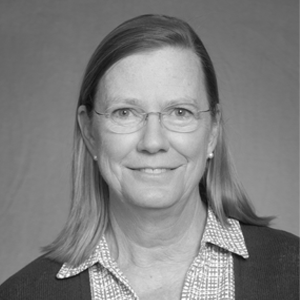You might have years—maybe decades—of experience managing food safety systems. But on audit day, that legacy doesn’t always translate into compliance. It’s not about how long you’ve worked. It’s about how well you can prove what you know.
And that’s where many SQF practitioners get blindsided.
The SQF Code technically allows for experience or training, but auditors don’t grade technicalities—they assess risk. They don’t just ask, “How long have you done this?” They ask, “Show me how you ensure this aligns with Edition 9.”
This is where even seasoned professionals find themselves on shaky ground. They thought their background would carry them. But the auditor wants proof: current knowledge, documented control, and verbal command of the system.
This guide is for practitioners, QA managers, and facility leaders who want to remove ambiguity before it becomes an audit finding. Whether you’re validating your own readiness or hiring someone new, what matters isn’t what’s on paper—it’s what passes in practice.
What the SQF Code Says—And Leaves Open to Interpretation
The SQF Code doesn’t demand formal training outright. It reads:
“The SQF practitioner shall be appropriately trained and/or experienced in the application of food safety principles relevant to the site’s scope of certification.”
On the surface, that looks flexible. Either experience or training could meet the mark. But embedded in that flexibility is a trap: the requirement for competency. Not presence. Not position. Not tenure. Competency.
And auditors don’t assess competency based on trust. They assess it based on how confidently and accurately you can demonstrate your food safety system under pressure.
This is where auditors begin asking:
- How do you verify your hazard analysis was updated for Edition 9?
- Can you show how your corrective action protocol maps to clause 2.4.3?
- What evidence supports your validation of CCPs?
If your answer is based on memory—or vague references to “how we’ve always done it”—you’re not meeting the bar.
Wondering whether your credential still carries weight—or if it ever did? This breakdown exposes which certifications actually hold up during audits.
What Auditors Look for—Even if the Code Doesn’t Spell It Out
Auditors don’t just read documents. They read people.
They want to know: Can you defend your program confidently, with language that matches the Code? Can you walk them through preventive controls without reaching for a cheat sheet? Can you interpret not just what your system does, but why it was designed that way?
We’ve seen practitioners with twenty years of experience marked “at risk” simply because they couldn’t answer a line of questioning about recent updates. We’ve seen facilities receive corrective actions because their practitioner—while seasoned—couldn’t map system elements to current SQF requirements.
More facilities are now defaulting to documented training—because auditors are asking for it. It’s not because the Code mandates it. It’s because audits don’t operate on benefit of the doubt.
When Training Isn’t Optional—Even If It’s Not Required
Experience matters. But it doesn’t always signal audit-readiness. Here are the scenarios where training becomes more than helpful—it becomes necessary:
- You’re new to the SQF Code, or transitioning from another GFSI scheme
- You’ve inherited a system that hasn’t been refreshed to match the latest Code update
- You’re stepping into the practitioner role for the first time at a new site
- Your facility received a corrective action for lack of practitioner clarity or documentation
Each of these situations introduces ambiguity—and ambiguity is what auditors flag.
Training closes the loop between assumed knowledge and demonstrable expertise. It shifts the discussion from “we believe this meets the Code” to “here’s how we’ve proven it.”
If you’re unsure whether your experience checks all the boxes under today’s Code, if you’re walking into your first SQF audit—or still relying on ‘hands-on’ experience—our upcoming article shows exactly where most new practitioners get blindsided.
Why Experienced Practitioners Still Choose Training
Training isn’t just for the inexperienced. It’s for the exposed.
- It builds audit fluency—so you speak the language auditors expect
- It demonstrates continuous improvement—which is a core SQF principle
- It provides credentialed proof—so your competence is validated, not assumed
We regularly see veteran practitioners seek formal training when:
- They’re preparing for their facility’s first SQF audit
- They’re expanding into new categories or processing methods
- They want assurance their current knowledge aligns with the most recent Code edition
If you’re asking whether your background still “counts,” you’re not alone. If you haven’t revisited your practitioner qualifications since the last Code update, we’ll explore what may have changed underneath you with Edition 10 in our next article.
Registrar Corp’s Practitioner Training Is Built for Audits
Registrar Corp’s SQF Practitioner Training doesn’t just teach principles. It builds audit credibility.
- Structured around real-world audit scenarios and questions
- Includes downloadable templates, forms, and validation tools you can use immediately
- Developed by former auditors and regulatory experts who know what passes—and what fails
- Courses backed by over 30,000 professionals trained and 1,300+ verified reviews
Whether you’re trying to prove your own readiness—or ensure the person you hire will survive audit day—this training closes the gap between trust and proof.
You’ve worked too hard to lose credibility at the moment it matters most. Don’t let audit ambiguity undermine decades of work—arm yourself with Registrar’s SQF Practitioner Training.








